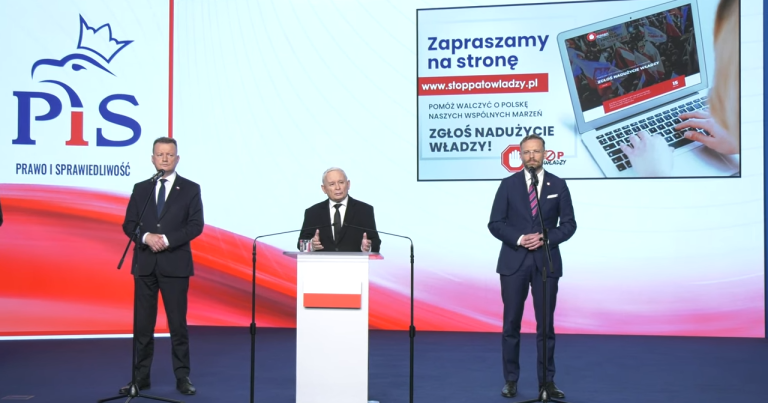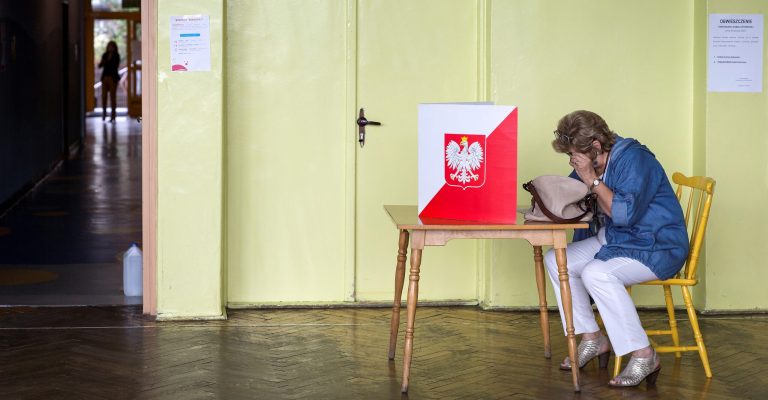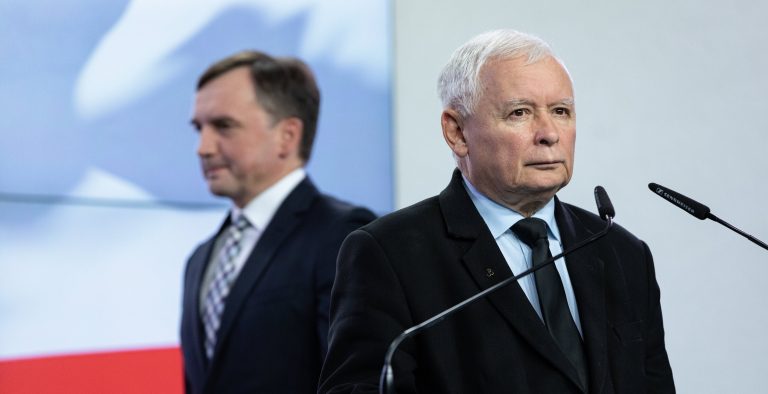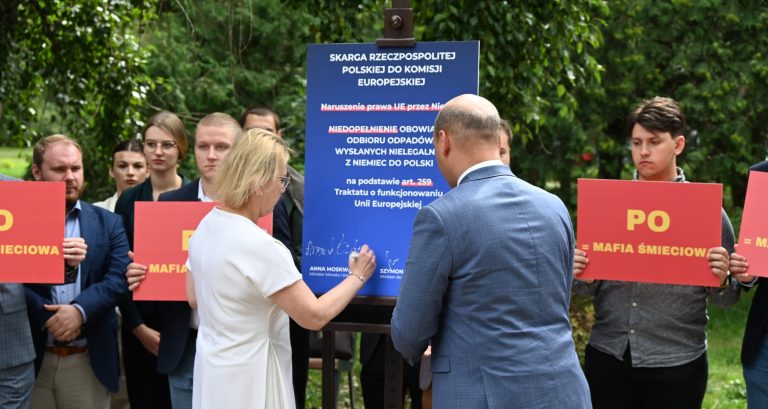Poland begins giving free laptops to all fourth graders
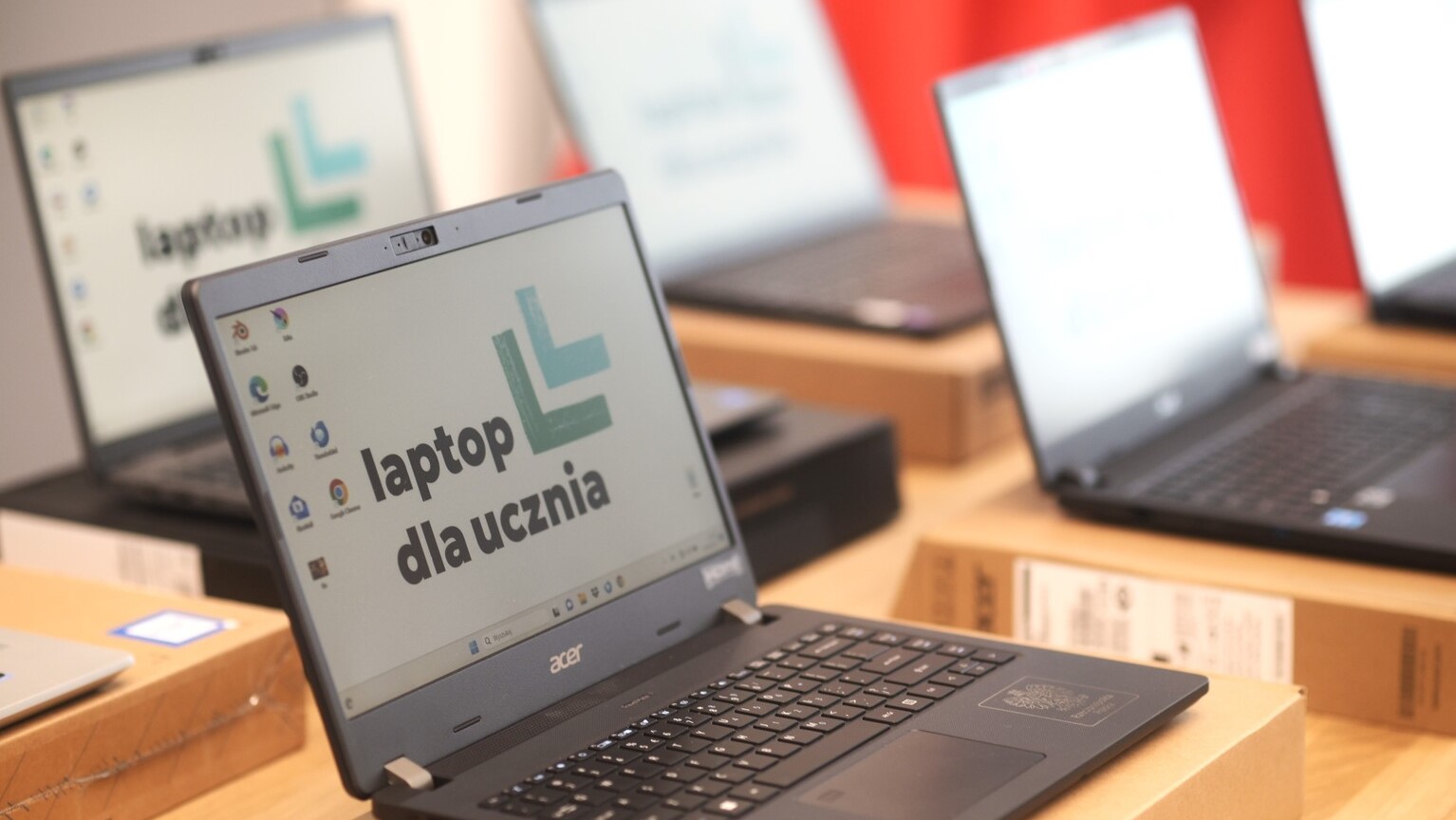
The Polish government has distributed the first 4,000 of almost 400,000 laptops it is providing to all pupils beginning the fourth grade of school this month. Teachers will also receive vouchers to help them buy laptops.
Legislation establishing the programme – which is the first of its kind in Poland – was approved by parliament in May with the support of all parties apart from the small far-right Confederation (Konfederacja) – which voted against it – and the centrist Poland 2050 (Polska 2050), which abstained.
As a result, from now on, every year, pupils beginning fourth grade will be provided with laptops. Teachers will receive vouchers worth 2,500 zloty (€559) for the purchase of laptops from a list of government-approved vendors.
🥳Już we wrześniu pierwsze laptopy trafią do uczniów czwartych klas! Zachęcamy do zapoznania się z podstawowymi informacjami o programie #LaptopDlaUcznia.
Sprawdź:
✅kto może skorzystać z programu,
✅jaki są jego warunki,
✅w jaki sposób będą przekazywane laptopy.… pic.twitter.com/o66llCSFcG
— Ministerstwo Cyfryzacji (@CYFRA_GOV_PL) August 29, 2023
“The free laptops programme is an element of pro-family policy, because public services, including education, are a very important area of life,” said deputy family and social policy minister Barbara Socha. “It is our duty to support local authorities to ensure that educational services are at the highest level.”
“Equipping children with this type of equipment and access to the internet also carries many risks, so it is a great responsibility for parents to teach children to use this equipment in a responsible way,” she added, quoted by Dziennik Gazeta Prawna.
The town of Otwock near Warsaw was among the first to receive the laptops. “We have to accustom young people from an early age to use digital tools effectively,” said its mayor, Jarosław Margielski.
“I think that thanks to these laptops, children will be able to take their first steps in the digital world much more effectively, which will allow them to conquer the [real] world in the future,” he added. “But we must remember that it is only a tool and the internet will not replace schools, Google will not replace teachers.”
Teachers have protested outside the education ministry, demanding pay rises, more funding, and an end to what they say is the politicisation of schools
In response, the education minister hung banners on the building showing increases in education funding https://t.co/4CPSGoNAAP
— Notes from Poland 🇵🇱 (@notesfrompoland) September 2, 2023
Last week, the digital affairs ministry confirmed that it had already signed contracts for the supply of over 290,000 laptops produced by Lenovo, HP, Dell, Asus and Acer. By mid-September, it aims to have finalised contracts for all 394,346 devices that will be provided by the programmes.
In response to questions from newspaper Fakt, the ministry explained that parents will have two options regarding how to obtain the laptops.
The first is to sign an agreement with the school for the device to be handed over to the family. After that, it will remain with the student for a period of five years, during which it cannot be sold or disposed of in any other way (including, for example, being lent to anyone else).
The Polish government is providing subsidies to help low-income farming families buy computers for their children to help with remote learning while schools remain closed due to the pandemic https://t.co/skoBVb164Q
— Notes from Poland 🇵🇱 (@notesfrompoland) December 15, 2020
The second option is for the parents to sign an agreement whereby the laptop remains the property of the school but is lent out to the student. Both types of agreement require parents to present the laptop at the school for inspection if requested.
The laptops will not include any means of limiting or monitoring how they are used, meaning that students will be free to use them as they wish. The equipment is also covered by a 36-month warranty, including a courier service to collect and return devices that need repair.
The Polish Press Agency (PAP) notes that the programme is meant to be financed through the European Union’s post-pandemic recovery fund, with any additional costs met by the Polish state budget. However, the EU has still not approved Poland’s share of the funds due to rule-of-law concerns.
Poland is seeing a boom in private education, fueled by the pandemic, the upheaval of education reform, fears of politicisation of public schools, and teacher shortages.
In Warsaw, the number of pupils in private schools has risen 37% since 2016 https://t.co/fOXUxzJRVD
— Notes from Poland 🇵🇱 (@notesfrompoland) June 6, 2022
Digital affairs minister Janusz Cieszyński noted on Saturday that Poland already has “fantastic results in the international PISA test”, a global ranking of student ability in which Polish pupils have among the best results in Europe.
However, global rankings relating to innovation show that Poland “still has a lot to do”, added Cieszyński, which is why improving the digital competencies of students is so important.
He noted that the government is also implementing a programme to provide high-speed internet connections to 100,000 classrooms around the country.
Poland has ranked first among EU countries – alongside Finland – in an international test of reading comprehension among school pupils.
It also has one of the largest gender disparities, with girls performing much more strongly than boys https://t.co/JHUh94BA0t
— Notes from Poland 🇵🇱 (@notesfrompoland) May 16, 2023
Main image credit: MEiN (under CC BY-NC-ND 3.0 PL)
Daniel Tilles is editor-in-chief of Notes from Poland. He has written on Polish affairs for a wide range of publications, including Foreign Policy, POLITICO Europe, EUobserver and Dziennik Gazeta Prawna.


